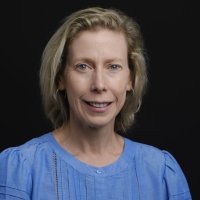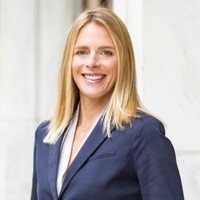LAUNCH | The Lancet Commission on peaceful societies through health equity and gender equality
Submit a question
“The message of the report we are issuing today is clear: health equity and gender equality have a unique and powerful ability to contribute to peace,” said Finland’s former President Tarja Halonen at the recent launch event at the Wilson Center for a new report by the Lancet Commission on peaceful societies through health equity and gender quality.
President Halonen is the Commission Chair for this report, and the event—hosted in partnership with The Lancet—offered her a chance to reflect on its key findings. “Our research suggests that processes to advance health equity and gender equality are more powerful when they operate together,” she said, “through access to comprehensive sexual and reproductive healthcare. The report underlines that health equity and gender equality principles and processes must be led by communities and tailored to their context.”
This Lancet Commission was launched in 2019, and its task was to assess and elucidate with the interrelationships between Sustainable Development Goal 3 (SDG 3) on health, SDG 5 on gender equality, and SDG 16, which is related to peace. The new report finds that tangible and meaningful improvements in health equity and gender equality not only advance dignity and potential, but they also place societies on a pathway towards more enduring peace.
“These findings have massive implications for policymakers and politicians, and for those of us who work in health: it’s not just for decisionmakers, it’s for all of us as citizens,” said Dr. Richard Horton, Editor-in-Chief at The Lancet. “The findings of the report urge us to consider health equity and gender equality as more than social values and norms.”
Reinforcing Cycles
The theory of change articulated in the Commission’s report is that health equity and gender equality improvements can enable societies to transition from harmful to beneficial cycles.
Health and gender outcomes are shaped by broader social and economic processes and interact with each other in feedback loops, explained Val Percival, DrPH, lead author for the Commission report and a Wilson Center Fellow. “To enable us to analyse these complex relationships, we adopted the concept of self-reinforcing cycles,” observed Percival. “Gender inequality, health inequity and violence reinforce each other, creating a harmful cycle.”
President Halonen noted that a significant change in the value of one of the variables can prompt the dynamic of the cycle to shift. “Improvements to health equity and gender equality can transform societal systems and enable communities to transition from harmful to beneficial cycles, putting them on a pathway to sustainable peace and wellbeing,” she said.
Percival also stated that “communities and policy makers struggle to respond to multiple and overlapping crises, ranging from the social and economic consequences of the COVID-19 pandemic, the impacts of climate change including food insecurity and natural disasters, and rising violence. We use the framing of the polycrisis within our report and illustrate how improvements to gender equality and health equity transform social, economic and political systems to provide a feasible and practical pathway for communities out of these harmful cycles of violence and inequity and into beneficial cycles of peace.”
The findings in the Commission report also suggest that improvements to health equity and gender equality can be catalytic when they are led by communities—and even transform society over the long term. “They transform the way we see each other and individual agency and capabilities. And they challenge and shift power within society,” said Percival.
Carolyn Chisadza, PhD, co-author of the Commission report and Senior Lecturer at the University of Pretoria, South Africa, noted that “each report recommendation is interconnected—they should not be implemented one by one, as they do not work in isolation.” She added that these changes also need to be endogenous, with civil society actors leading the coordination process at the local and national levels and helping to monitor progress.
The primary recommendations of the Lancet Commission report take the view that communities and context should shape and drive gender equality and health equity initiatives for change from the “inside out.” In practice, this means that health responses should embrace, advance, and advocate for gender equality; initiatives to advance health equity and gender equality should support openness, inclusivity, and accountability – and be data driven; and national and global agendas for development and conflict must incorporate health equity and gender equality.
“As UN Secretary General Antonio Guterres and Secretary General Ban Ki-moon before him have underlined: sustainable development will not be achieved without progress in gender equality,” said President Halonen. She added that gender equality is both a human right and a precondition for a successful and peaceful society: “Women and girls often bear the heaviest burden in crises, including as health-care workers, family caretakers, or when facing violence or lack of essential services. On the other hand, women’s participation in peace processes leads to more durable peace agreements and their role in decision-making can critically strengthen the response and resilience of society.”
Dr. Ahmed Al-Mandhari, Regional Director for Eastern Mediterranean at the World Health Organization (WHO) observed that “we in the health community must assertively say, and act upon it, that there is no health without peace and there is no peace without healthy societies.” He argued that while prioritizing health and gender equality in humanitarian and conflict affected regions is a priority, it also is imperative that we understand the drivers of conflict and embed conflict analysis into health programming.
“In conflict-affected countries,” said Dr. Al-Mandhari, “the World Health Organization is promoting a health development and peace nexus approach, training humanitarian and development workers on both public health and peace outcomes.”
Keys to Peaceful Societies
The discussion at the report launch also identified advocacy as a key component in achieving health equity. “We need to provide social support to advocates, as advocacy can be an extremely isolating experience. Advocates face pressure from international organizations to pursue objectives a certain way and from governments who oppose their views, leaving them with little support,” said Dr. Alaa Murabit, Director of Program Advocacy and Communications and Health at the Bill & Melinda Gates Foundation.
Dr. Murabit added that flexible funding allows local advocates to quickly shift their strategies to adapt to fluid situations. “In conflict-afflicted societies, red tape and lengthy application processes for funding are a major hurdle. We need to avoid tokenizing local voices and recognize that they can often wield enormous power locally, not just on the international stage,” she said.
Donors are another key to finding solutions. “An interdisciplinary approach is essential but can be hamstrung sometimes by a narrow sectoral program. These programs may result in a successful output, but not always transformative change,” said Chris Milligan, a former Counselor at the United States Agency for International Development (USAID). “In Madagascar, despite decades of USAID (and other donor) support, GDP per capita is lower than it was in 1980. This is due to cycles of conflict and instability erasing any gains made by narrow programs focused on disease treatment, food insecurity, etcetera.”
Milligan explained that institutional silos and the structure of the development system make it difficult to promote interdisciplinary approaches: each sector has its own experts, theories, frameworks, indicators, and even earmarked funding. “These can’t be changed overnight. Funding sources may be siloed, but implementation does not have to be,” Milligan said.
“We should rethink how we can use health funding to empower local leaders and promote good governance. Strategies should be based on a sophisticated understanding of the unique social, political, and economic dynamics of the country they are being applied in.”
Another key component in the process is encouraging self-guided leadership within countries and embracing the need for new leaders, including women and young people. “Youth is incredibly important. As seniors in the field, we need to pave the way for young people to be at the decision tables,” said Peter Friberg, PhD, a Professor at the University of Gothenburg and a co-chair of the Lancet Commission.
Yet as Chris Milligan noted, any push for new leaders must align with the emphasis on community at the heart of the report’s recommendations: “We should recognize the importance of local communities and invest in building the next generation of local leaders.”
Written by Sarah B. Barnes, edited by Richard Byrne.
Speakers








Introduction

Moderator

Hosted By

Maternal Health Initiative
Housed within the Wilson Center's Environmental Change and Security Program, the Maternal Health Initiative (MHI) leads the Wilson Center’s work on maternal health, global health equity, and gender equality. Read more


Canada Institute
The mission of the Wilson Center's Canada Institute is to raise the level of knowledge of Canada in the United States, particularly within the Washington, DC policy community. Research projects, initiatives, podcasts, and publications cover contemporary Canada, US-Canadian relations, North American political economy, and Canada's global role as it intersects with US national interests. Read more


Environmental Change and Security Program
The Environmental Change and Security Program (ECSP) explores the connections between environmental change, health, and population dynamics and their links to conflict, human insecurity, and foreign policy. Read more


Middle East Program
The Wilson Center’s Middle East Program serves as a crucial resource for the policymaking community and beyond, providing analyses and research that helps inform US foreign policymaking, stimulates public debate, and expands knowledge about issues in the wider Middle East and North Africa (MENA) region. Read more

